PTSD
"No one works this job and is not profoundly affected by it. Our goal is to help intervene with destructive behavior, to help maintain good mental health, and to provide as much information as possible about signs of impending or current problems and treatment avenues."
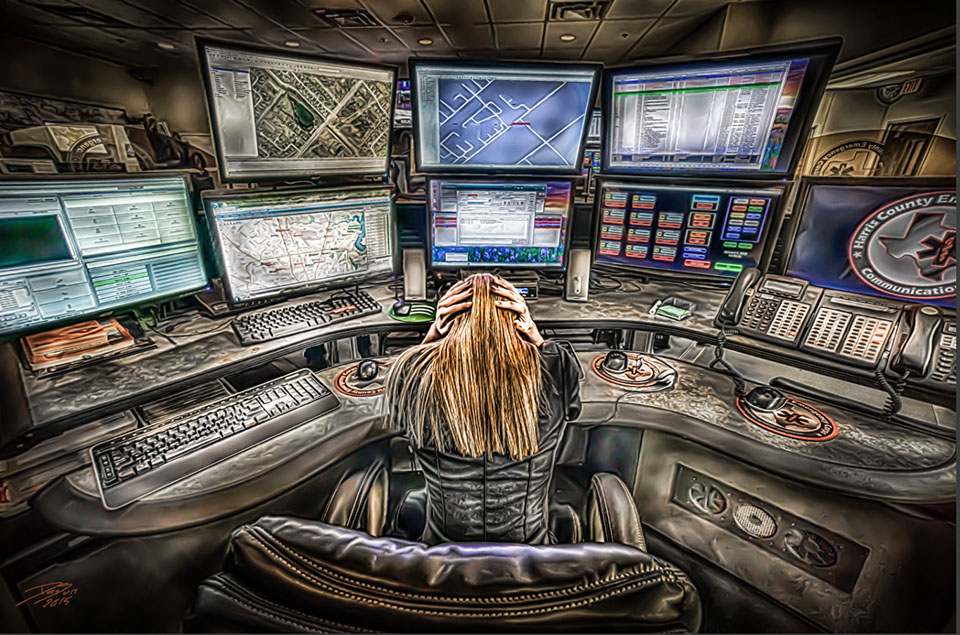
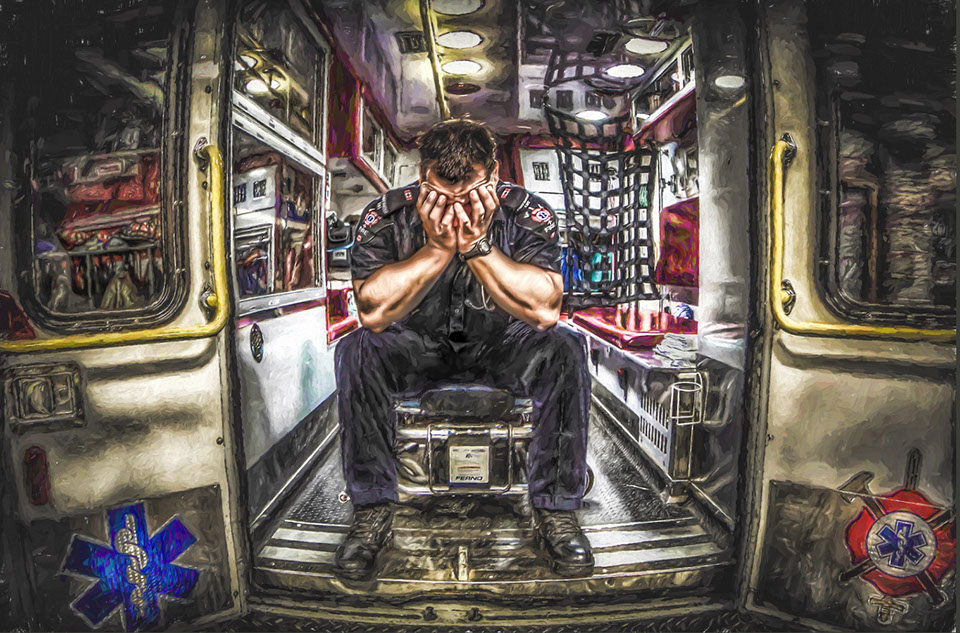
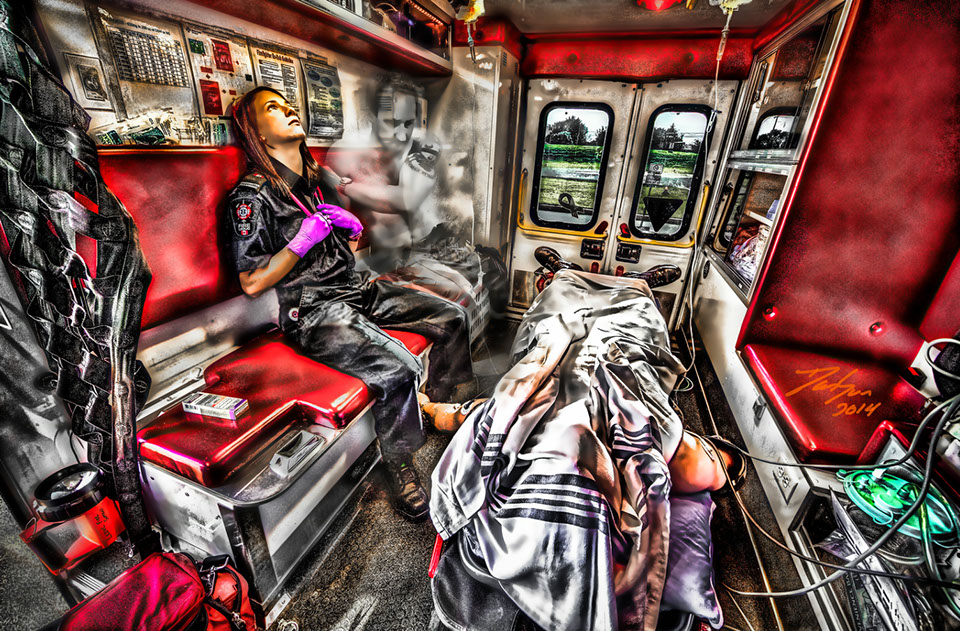
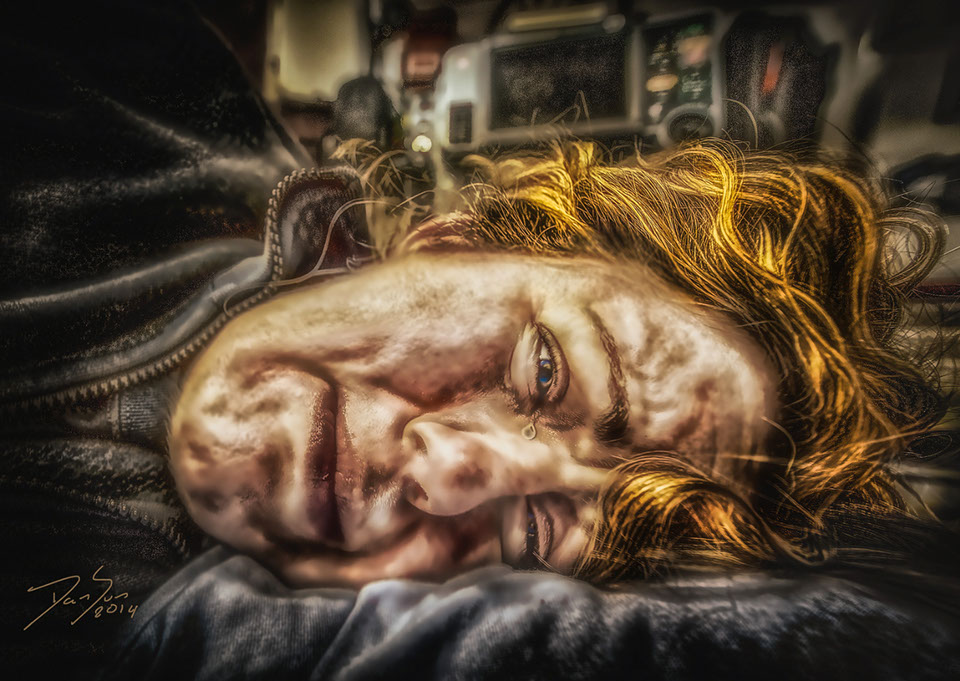
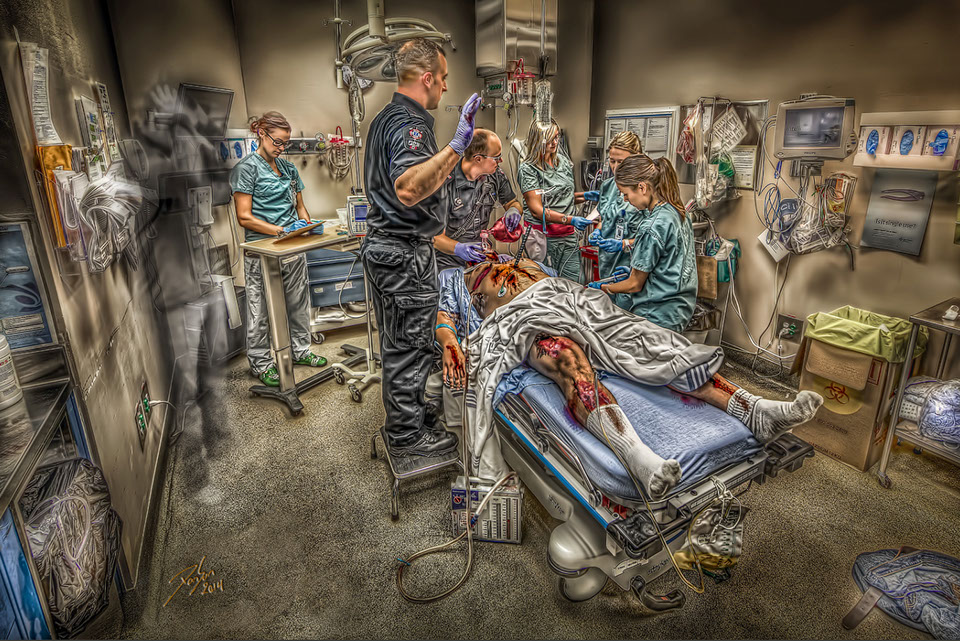
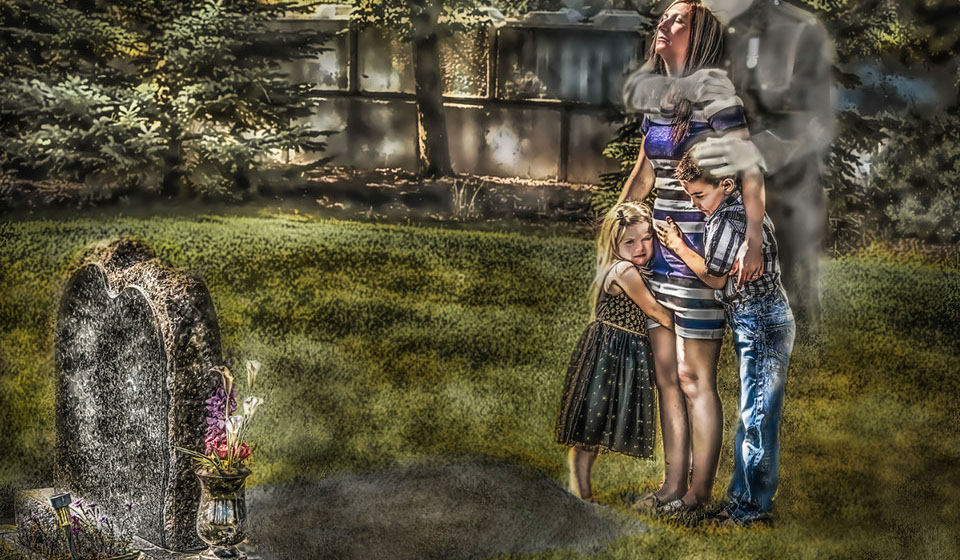
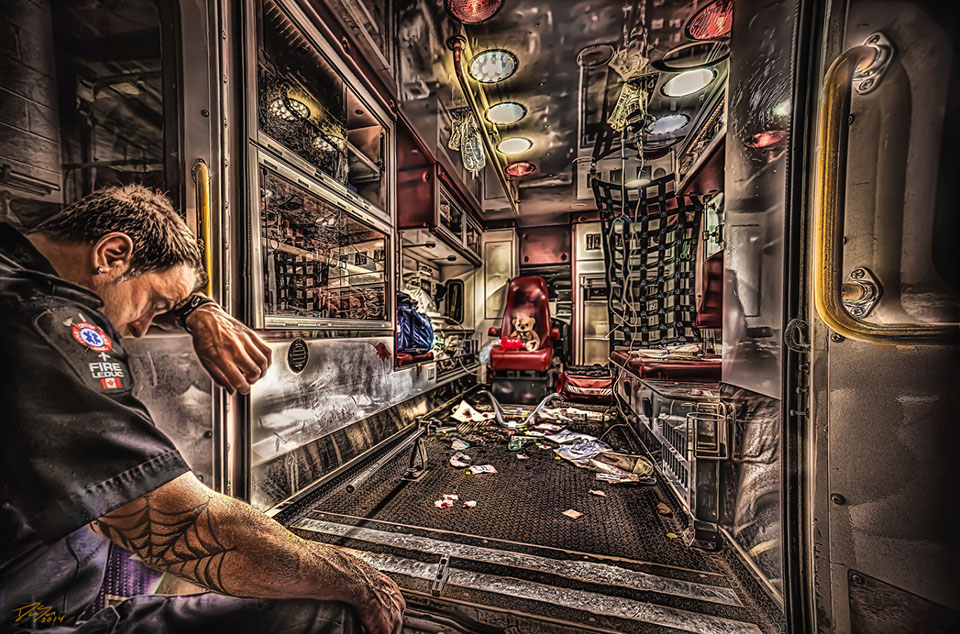
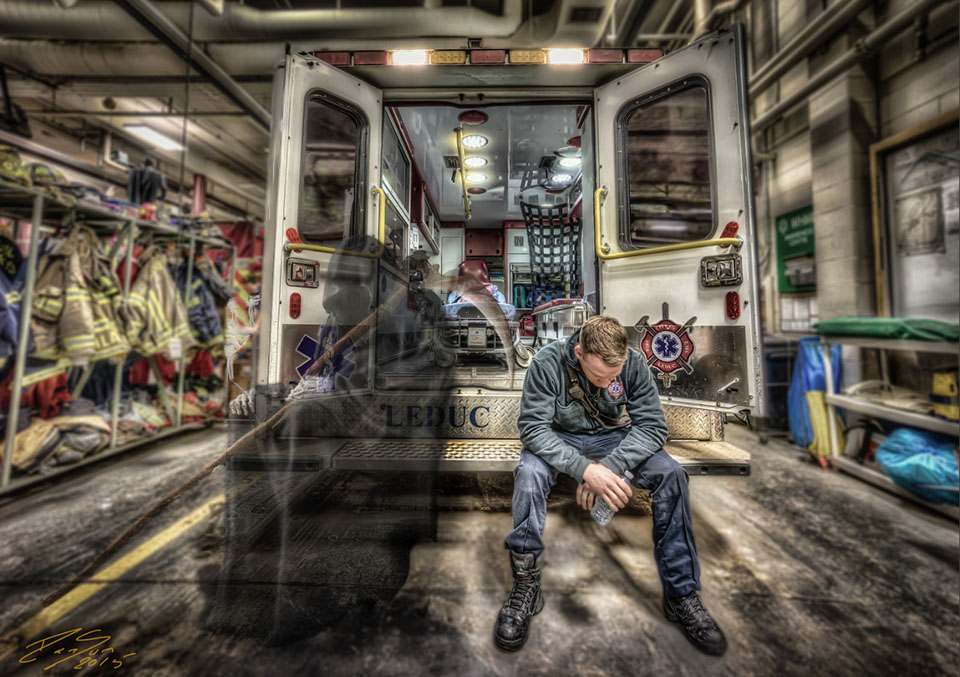
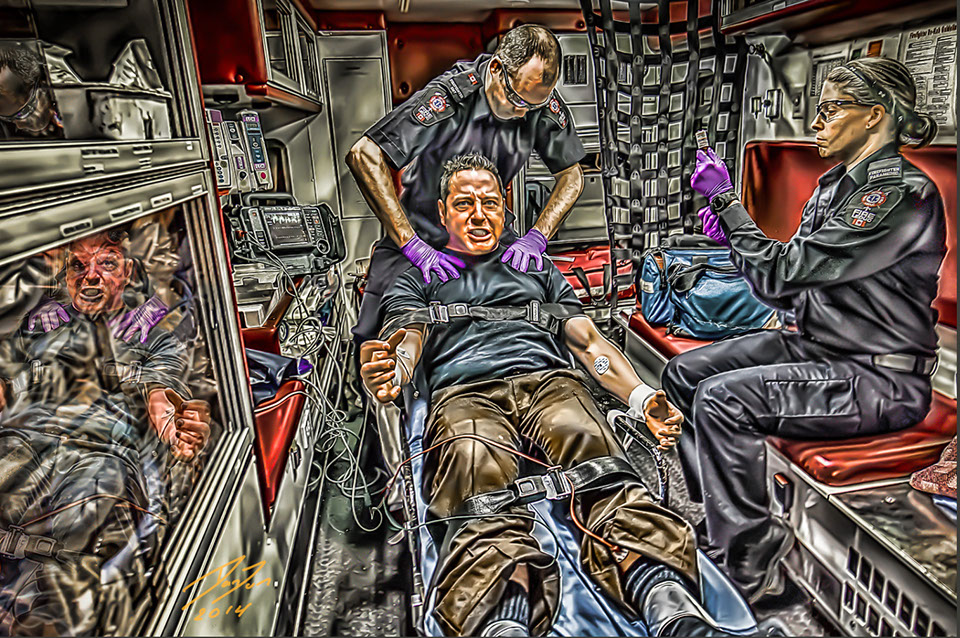
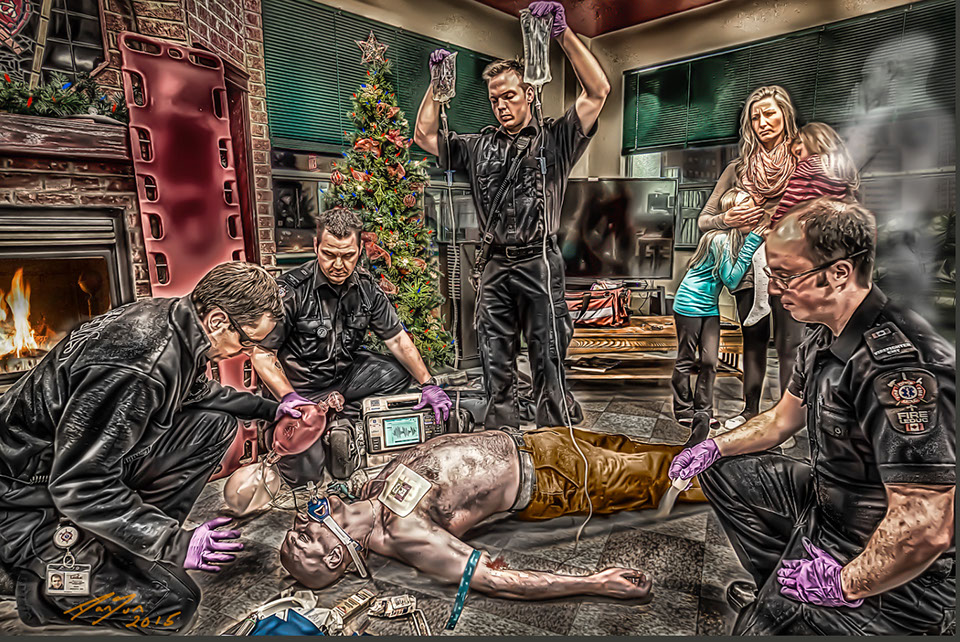
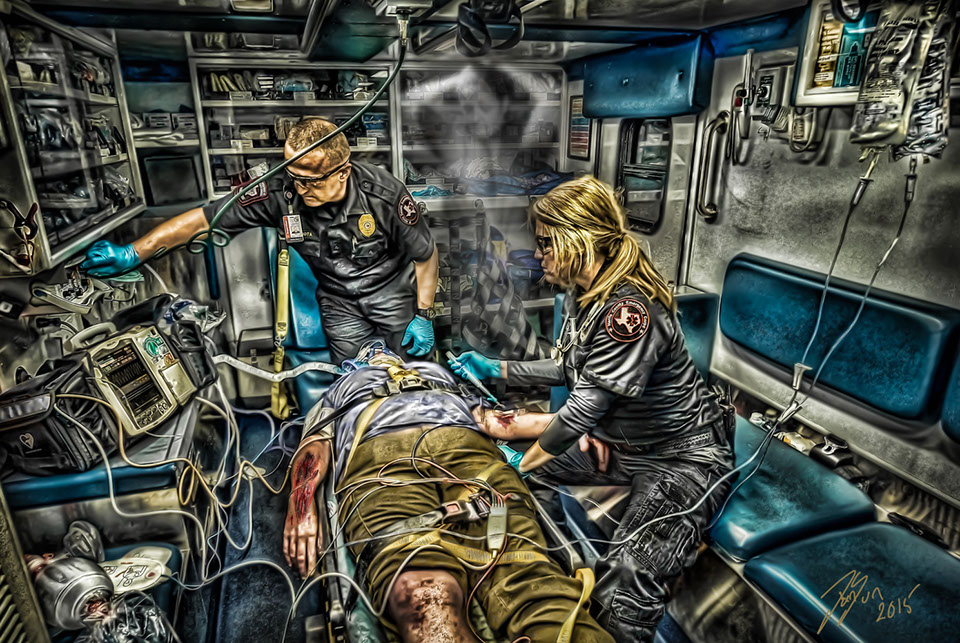
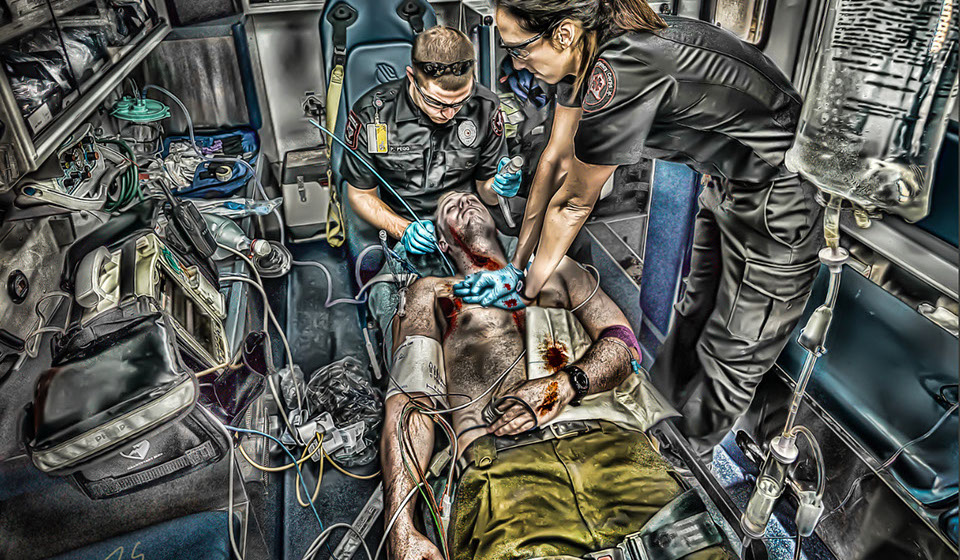
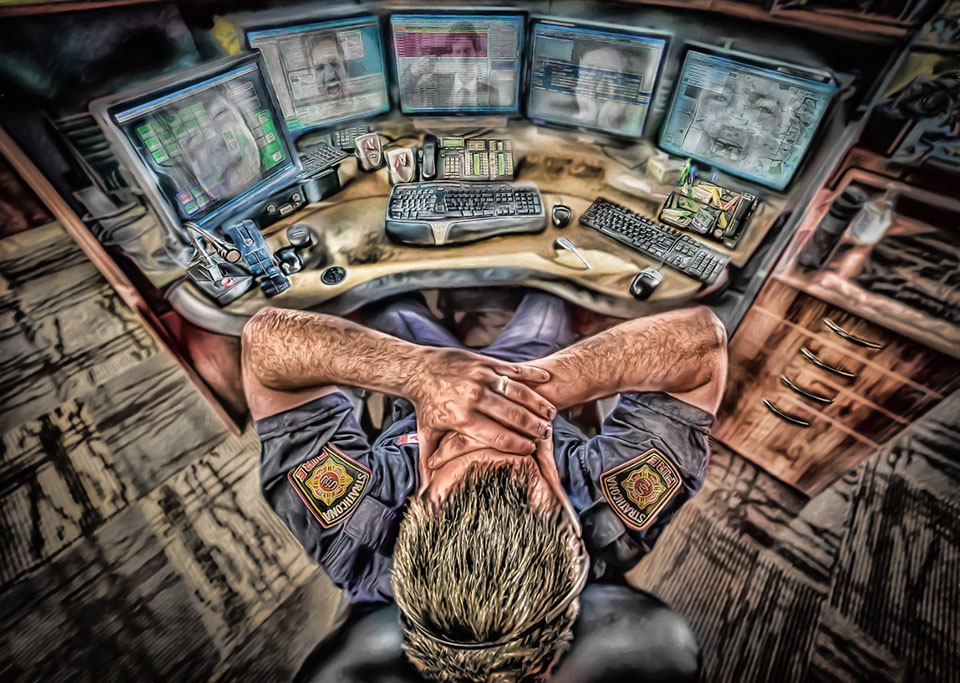
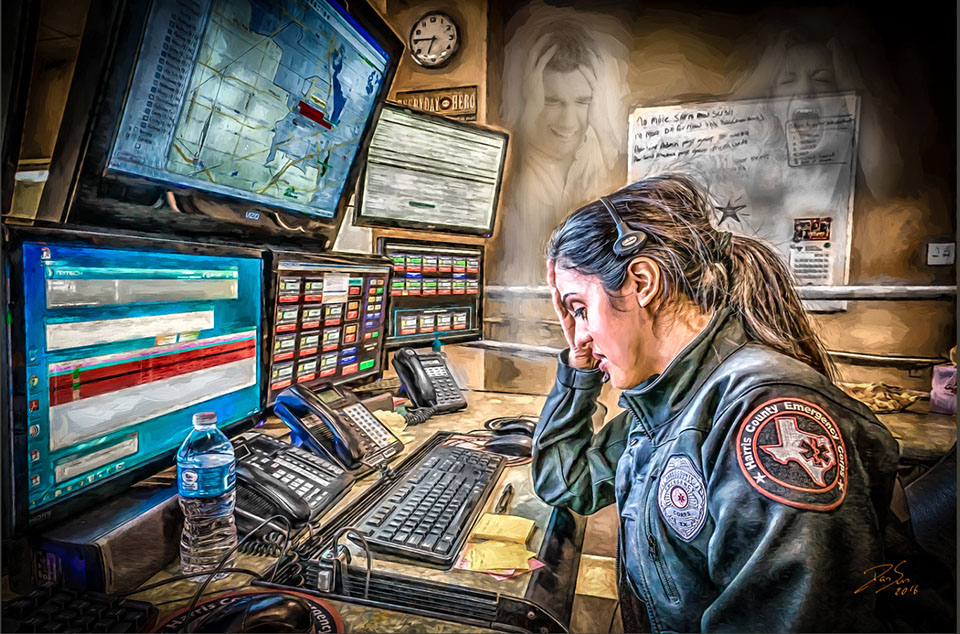
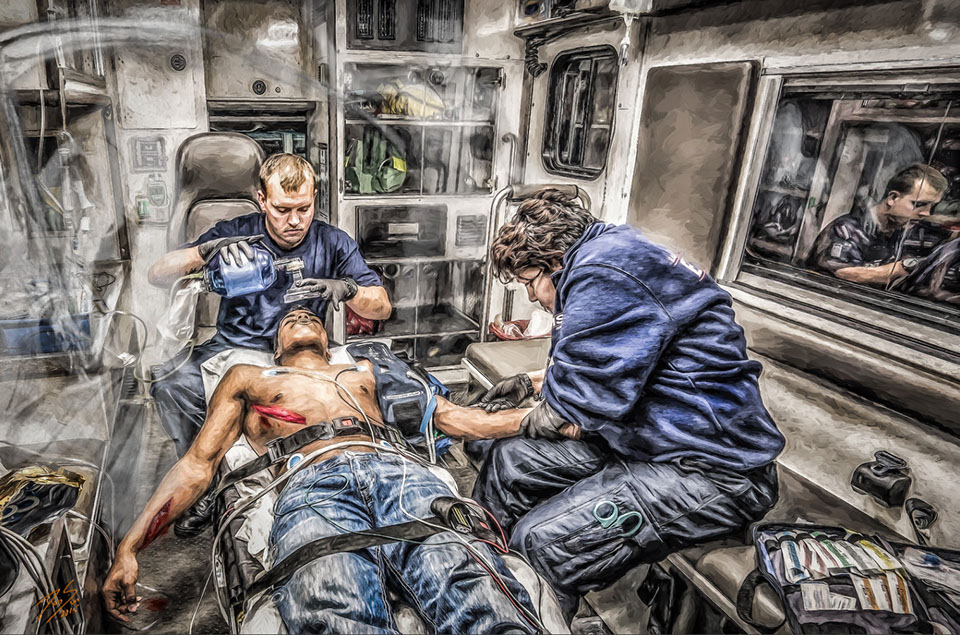
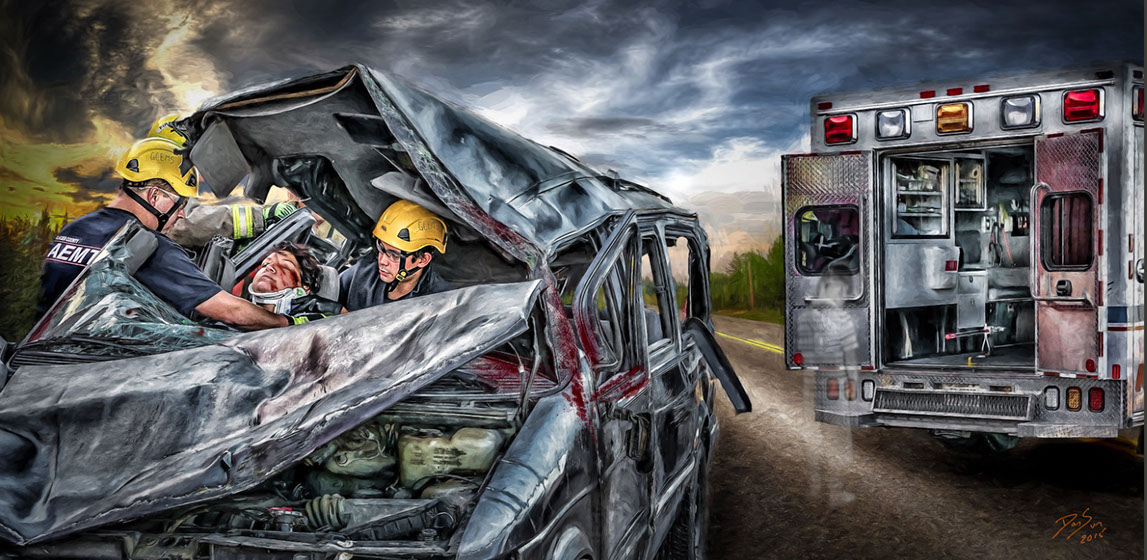
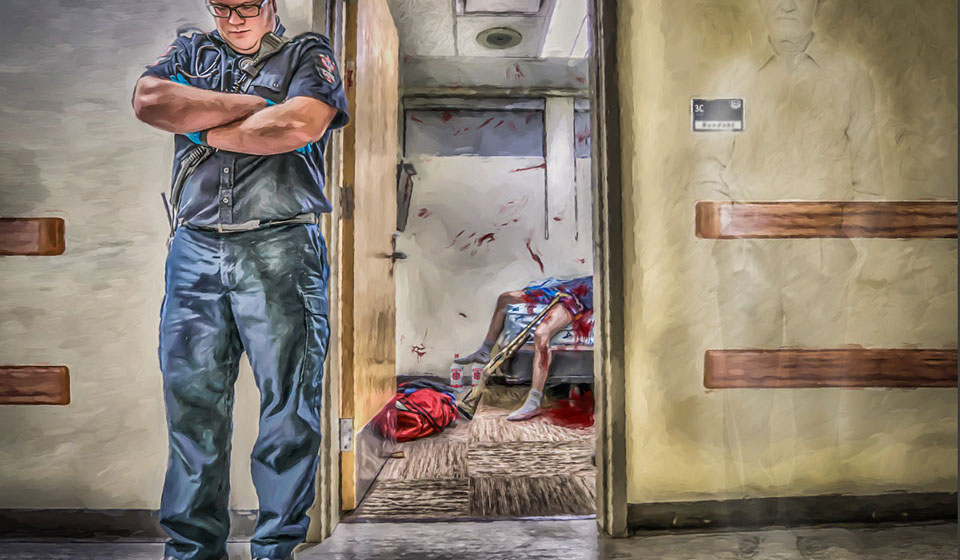
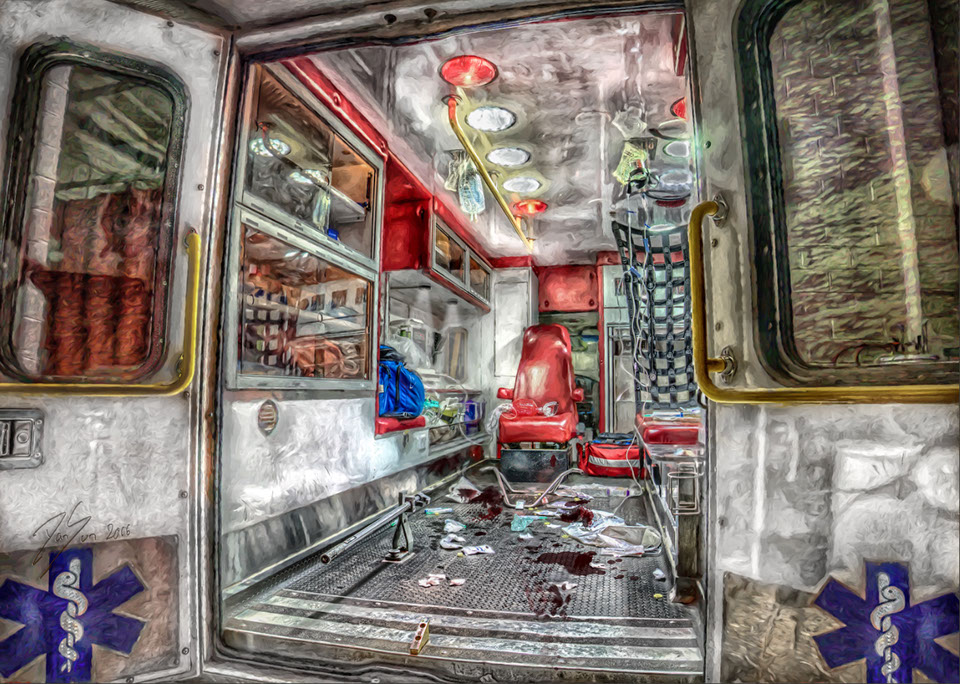
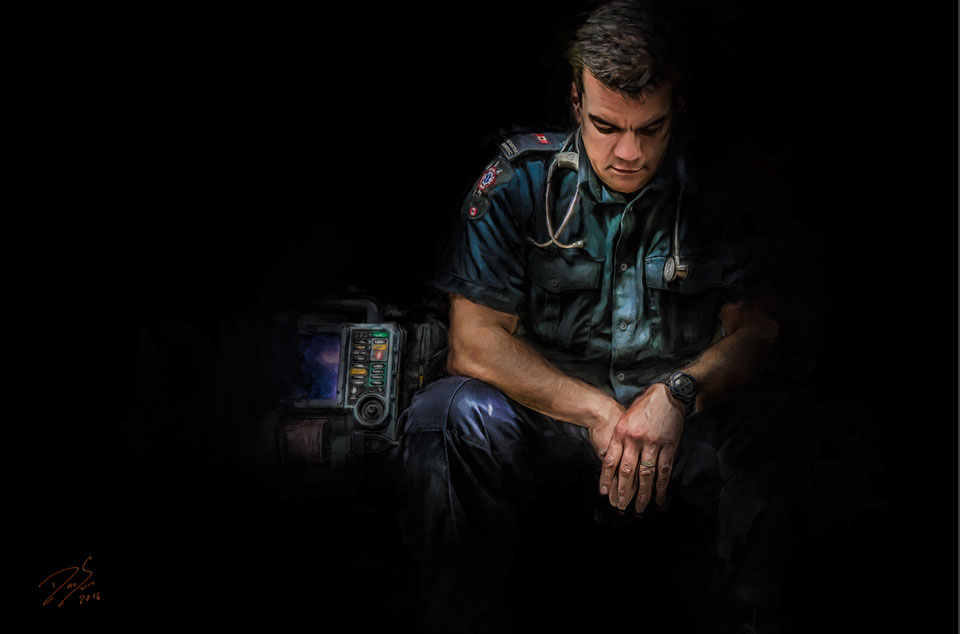
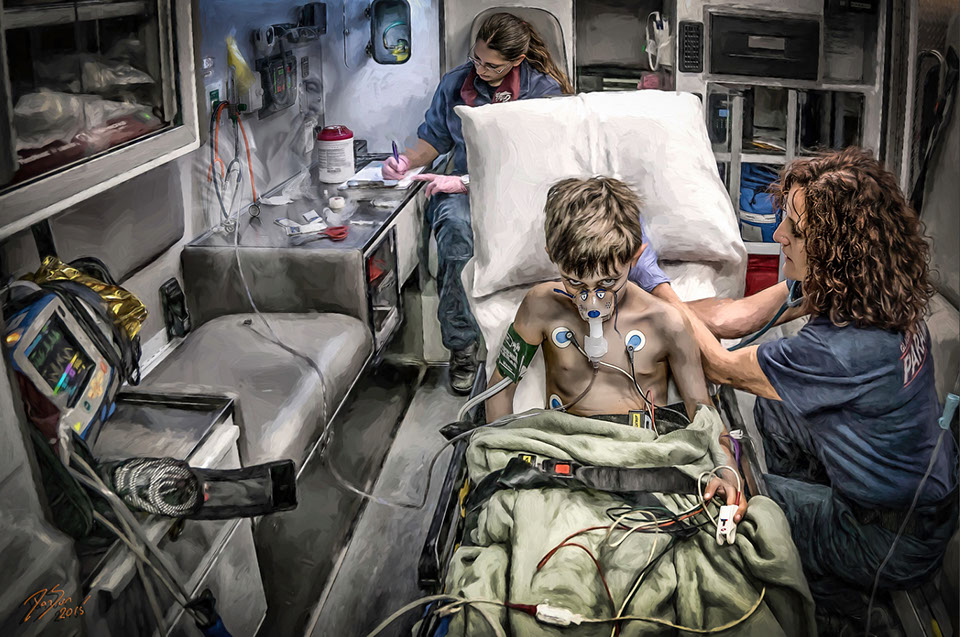
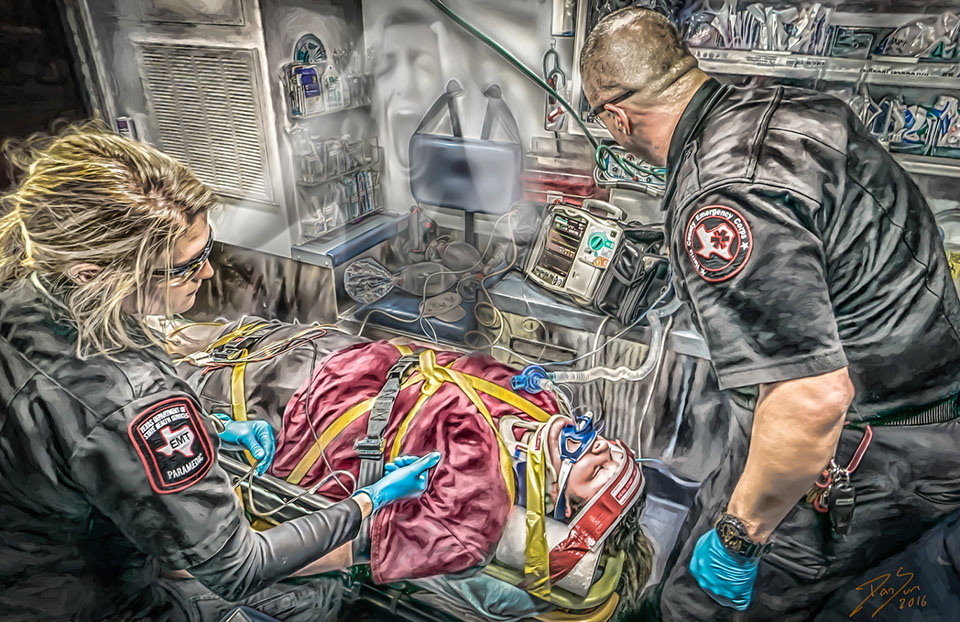
We believe that many who will come to our site are the loved ones of firefighters and paramedics. We have always been good about rescuing others, but not ourselves.
Look at what we have available, Google search as well because this is not a definitive site. Please contact someone within our EAP network, speak to a friend, talk to that special someone who may be hurting.
Remember, the only thing necessary for the continued destruction within is that friends and family do nothing.
THE TRUTH ABOUT THE SCARS THAT DON’T SHOW
- by Captain Pete Wallwork
Firefighters and paramedics will see unthinkable things in the course of their careers: images of death, desolation, and sorrow at a level that most people will never know. Shift after shift, dealing with the most heart wrenching of events, they are required to place themselves back in service for the next call with no time to process what just happened.
No firefighter or paramedic will complete their career without the lasting scars the job will leave upon their soul. As rescuers by trade, most will bury this hurt down deep where they hope it will never rise again. But our demons are never far from the surface.
As years pass or other problems arise, these nightmares that we have buried deep begin to rise up, and haunt us. These recurring feelings can help drive us further from the ones we love or count on.
Many young firefighters believe that the monsters they bury will never get them; that they are immune to the horrors they experience one third of their lives. This is simply not true.
No one works this job and is not profoundly affected by it. Our goal is to help intervene with destructive behavior, to help maintain good mental health, and to provide as much information as possible about signs of impending or current problems and treatment avenues.
 Hosted by veteran Florida broadcaster Russ Morley, ADDICTION TODAY is a talk radio program devoted to exposing the extent and root causes of drug and alcohol addiction in today’s society, the consequences of non-action, and offers practical and results-focused solutions.
Hosted by veteran Florida broadcaster Russ Morley, ADDICTION TODAY is a talk radio program devoted to exposing the extent and root causes of drug and alcohol addiction in today’s society, the consequences of non-action, and offers practical and results-focused solutions.
Guests include counseling and medical professionals, addiction professionals, pharmaceutical representatives, recovering addicts, political leaders, legal professionals, and law enforcement representatives. Broadcast Saturdays at 10:30am on WJNO-1290AM and Sundays at 10:30am on WZZR-94.3FM.
On October 15, 2016, Dan Perzanoski, Family and Intensive Outpatient Counselor, Hanley Center at Origins and Professional Firefighters/Paramedics of Palm Beach County, Local 2928 IAFF EVP, Joel Breier met for a special two-part, two guest show. Dan and Joel talked about First Responders and Recovery, the issues they face including the stress of the job, PTSD, and the solutions for Fire-Rescue personnel and their families dealing with addiction seeking help.

How Trauma Impacts the Brain


How Trauma Impacts the Brain
It plays havoc with the entire nervous system, which prevents people from processing and integrating traumatic memories into conscious mental frameworks.
Traumatic memories stay "stuck" in the brain's nether regions--the nonverbal, nonconscious, subcortical regions (amygdala, thalamus, hippocampus, hypothalamus and brain stem)--where they are not accessible to the frontal lobes--the understanding, thinking, reasoning parts of the brain.
What is Posttraumatic Stress Disorder?
Posttraumatic Stress Disorder (PTSD) is an anxiety disorder that can occur after someone experiences a traumatic event that caused intense fear, helplessness, or horror. PTSD can result from personally experienced traumas (e.g., rape, war, natural disasters, abuse, serious accidents, and captivity) or from the witnessing or learning of a violent or tragic event.
- While it is common to experience a brief state of anxiety or depression after such occurrences, people with PTSD continually re-experience the traumatic event; avoid individuals, thoughts, or situations associated with the event; and have symptoms of excessive emotions.
- People with this disorder have these symptoms for longer than one month and cannot function as well as they did before the traumatic event.
- PTSD symptoms usually appear within three months of the traumatic experience; however, they sometimes occur months or even years later.
What are the symptoms?
Although the symptoms for individuals with PTSD can vary considerably, they generally fall into three categories:
Re-experience
- - Individuals with PTSD often experience recurrent and intrusive recollections of and/or nightmares about the stressful event. Some may experience flashbacks, hallucinations, or other vivid feelings of the event happening again. Others experience great psychological or physiological distress when certain things (objects, situations, etc.) remind them of the event.
Avoidance
- Many with PTSD will persistently avoid things that remind them of the traumatic event. This can result in avoiding everything from thoughts, feelings, or conversations associated with the incident to activities, places, or people that cause them to recall the event. In others there may be a general lack of responsiveness signaled by an inability to recall aspects of the trauma, a decreased interest in formerly important activities, a feeling of detachment from others, a limited range of emotion, and/or feelings of hopelessness about the future.
Increased arousal
- - Symptoms in this area may include difficulty falling or staying asleep, irritability or outbursts of anger, difficulty concentrating, becoming very alert or watchful, and/or jumpiness or being easily startled.
It is important to note that those with PTSD often use alcohol or other drugs in an attempt to self-medicate. Individuals with this disorder may also be at an increased risk for suicide.
- - Individuals with PTSD often experience recurrent and intrusive recollections of and/or nightmares about the stressful event. Some may experience flashbacks, hallucinations, or other vivid feelings of the event happening again. Others experience great psychological or physiological distress when certain things (objects, situations, etc.) remind them of the event.
How is it treated?
- here are a variety of treatments for PTSD, and individuals respond to treatments differently. PTSD often can be treated effectively with psychotherapy or medication or both.
- Behavior therapy focuses on learning relaxation and coping techniques. This therapy often increases the patient's exposure to a feared situation as a way of making him or her gradually less sensitive to it.
- Cognitive therapy is therapy that helps people with PTSD take a close look at their thought patterns and learn to do less negative and nonproductive thinking. Group therapy helps for many people with PTSD by having them get to know others who have had similar situations and learning that their fears and feelings are not uncommon.
Types of traumatic events
- One study of United States firefighters looked at the type of traumatic events experienced. High rates of traumatic exposure were found. For example, many had been exposed to crime victim incidents, people who were "dead on arrival" (where the death was not due to natural causes), accidents where there were serious injuries, and some also reported that they had experienced stress associated with giving medical aid to children and infants.
- Another study found that firefighters generally reported that medical emergencies and motor vehicle accidents were the most upsetting types of calls that they received.
Risk factors for firefighters
A few studies have also looked at what factors might put firefighters at greater risk for the development of PTSD. A number of risk factors for PTSD among firefighters have been identified. These include:
- Being previously in treatment for another disorder.
- Starting work as a firefighter at a younger age.
- Being unmarried
- Holding a supervisory rank in the fire service.
- Proximity to death during a traumatic event.
- Experiencing feelings of fear and horror during a traumatic event.
- Experiencing another stressful event (for example, loss of a loved one) after a traumatic event.
- Holding negative beliefs about oneself (for example, feeling as though you are inadequate or weak).
- Feeling as though you have little control over your life.
Protective factors for firefighters
- Even though firefighters might be at high risk for stress as a result of their jobs, it is important to point out that most firefighters will not develop PTSD. In fact, several factors have been identified that may reduce the likelihood of developing PTSD among firefighters after the experience of multiple traumatic events.
- One of the most important protective factors found was having social support available either at home or through work.
- In addition, it has also been found that having effective coping strategies available may lessen the impact of experiencing multiple traumatic events.
- This is not surprising in that, among people in general, the availability of social support and effective coping strategies have consistently been found to reduce the risk for developing PTSD following a traumatic event.
Criteria
Criterion A
- A person must have experienced a traumatic event where both of the following occurred:
- The person experienced, witnessed, or was confronted with an event where there was the threat of or actual death or serious injury. The event may also have involved a threat to the person's physical well-being or the physical well-being of another person.
- The person responded to the event with strong feelings of fear, helplessness, or horror.
Criterion B
- The person experiences at least one of the following re-experiencing symptoms of PTSD:
- Frequently having upsetting thoughts or memories about a traumatic event.
- Having recurrent nightmares.
- Acting or feeling as though the traumatic event were happening again, sometimes called a "flashback."
- Having very strong feelings of distress when reminded of the traumatic event.
- Being physically responsive, such as experiencing a surge in your heart rate or sweating, to reminders of the traumatic event.
Criterion C
- The person experiences at least three of the following avoidance symptoms of PTSD:
- Making an effort to avoid thoughts, feelings, or conversations about the traumatic event.
- Making an effort to avoid places or people that remind you of the traumatic event.
- Having a difficult time remembering important parts of the traumatic event.
- A loss of interest in important, once positive, activities.
- Feeling distant from others.
Sources
- Corneil, W., Beaton, R., Murphy, S., Johnson, C., & Pike, K. (1999). Exposure to traumatic incidents and prevalence of posttraumatic stress symptomatology in urban firefighters in two countries. Journal of Occupational Health Psychology, 4, 131-141.
- Del Ben, K.S., Scotti, J.R., Chen, Y., & Fortson, B.L. (2006). Prevalence of posttraumatic stress disorder symptoms in firefighters. Work and Stress, 20, 37-48.
- Haslam, C., & Mallon, K. (2003). A preliminary investigation of posttraumatic stress symptoms among firefighters. Work and Stress, 17, 277-285.
- Heinrichs, M., Wagner, D., Schoch, W., Soravia, L.M., Hellhammer, D.H., & Ehlert, U. (2005). Predicting posttraumatic stress symptoms from pretraumatic risk factors: A 2-year prospective follow-up study in firefighters. American Journal of Psychiatry, 162, 2276-2286.
- http://ptsd.about.com/od/prevalence/a/Firefighters.html
- www.nami.org
The images in this site are from www.dansunphotos.com. His work is amazing and captures the torment many in our field feel. Copies of his art can be purchased through his site.
Content from this site was obtained from our sister site







